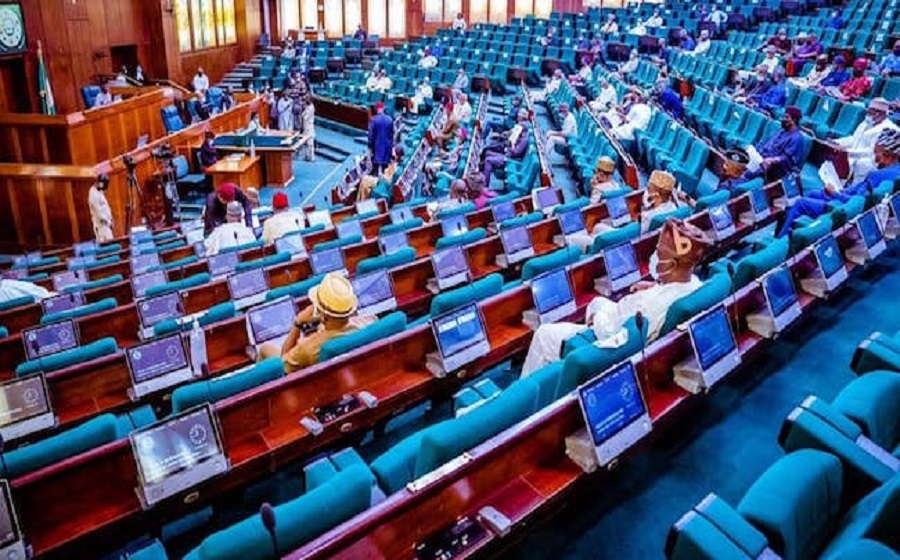The Speaker of the Nigeria House of Representatives, Femi Gbajabiamila says corruption has robbed Nigeria of development at all levels.
Gbajabiamila said this at a Capacity Workshop for House Committee on Anti-Corruption, organised by the House Committee On Anti-Corruption and the Konrad-Adenauer-Stiftung, in Abuja.
He said, “the House of Representatives has over the years tried its best to curb the menace of corruption in the Nigerian system.”
The Speaker also noted that through the House Committee on Anti-Corruption, the National Assembly has worked against misappropriation and management of funds.
He said; “The best way to curb corruption is by designing and implementing a framework of accountability that includes laws and regulations, personnel training and meticulous oversight of administrative decisions about public resources. It also requires that in legislating the authority of departments and agencies, we take measures to limit the discretionary prerogative because all corruptions ultimately are an abuse of discretion.”
Gbajabiamila urged all legislators at the workshop to take advantage of the gathering to hold substantive conversations about the legislative role in fighting corruption.
The Chairman of the Independent Corrupt Practices and Other Related Offenses Commission, Professor Bolaji Owasanaye, said that there are many types of corruption existing in Nigeria.
He noted that the diversion of funds made for one particular project to another is corruption.
“There is a problem I have with the ethical understanding that we share as a community. I say this because it appears that some of the things that are killing, some people do not recognise it. If we don’t deal with these ethical issues, we are going to struggle with each other. Somebody will say this is corruption and somebody will say no! There’s nothing wrong with it,” Professor Owasanaye said.
He said that Nigeria was not in short supply of anti-corruption agencies but a short supply of integrity.
The Speaker said that it was obvious that in different ways corruption impacts governance.
Similarly, the Director-General of the National Institute For Legislative and Democratic Studies, NILDS, Professor Abubakar Sulaiman, said that the workshop offers the Committee the opportunity to evaluate their successes and challenges in supporting the work of anti-corruption agencies to curb corruption over the last three years.
Professor Sulaiman said; ” The link between corruption, instability and insecurity is well understood and documented. Many studies have documented the negative effect of corruption on development, economic growth, and democracy.”
“According to Transparency International, corruption can fuel conflict and instability in three ways; it fuels social and political grievances, provides incentives for violent conflicts, and undermines both the capacity and legitimacy of the state.
“Corruption’s impact on the effectiveness of security institutions is often detrimental and can threaten peace and breed instability. For instance, in Mali, years of corruption and neglect in the run-up to the 2012 coup d’état undermined the capacities of the armed forces to counter the rebellion in the north. Here in Nigeria, there have been several allegations by security personnel of non-payment or underpayment of their allowances and poor living conditions primarily due to corruption,” Prof. Suleiman explained.
He said that the National Assembly has undoubtedly contributed immensely to supporting this objective by providing the needed legislative framework, oversight and funding required to curb corruption.
On her part, the Resident Representative of the Konrad-Adenauer-Stiftung, Marija Peran said that with many complex security challenges and corrupt practices in place, Nigeria faces true hardships.
Peran said; “Corruption in the security sector has a detrimental impact both on the security apparatus itself and on wider peace and security. It adds fuel to the tensions and further adds to conflict and instability. Studies show how corruption and state instability are correlated and that states who are dominated by narrow patronage-based systems are more susceptible to instability. When this further intersects with factors that include poverty, human rights violations, ethnic marginalisation and easy access to small and light weapons, security sector corruption has had an alarmingly negative effect on human security in Nigeria and the whole of West Africa,” Peran said.
She noted that the topic of corruption needs to be approached by all stakeholders and addressed holistically.
“There is a growing tide of awareness throughout the world that combating corruption is integral to achieving more effective, fair and efficient governments. We wish to support building your capacity to be able to draft and implement the relevant legislative frameworks and to use your oversight mandate,”she added.
The House Committee on Anti-Corruption, Shehu Garba said that the workshop would further empower its members to function more effectively in the fight against corruption.
VON



